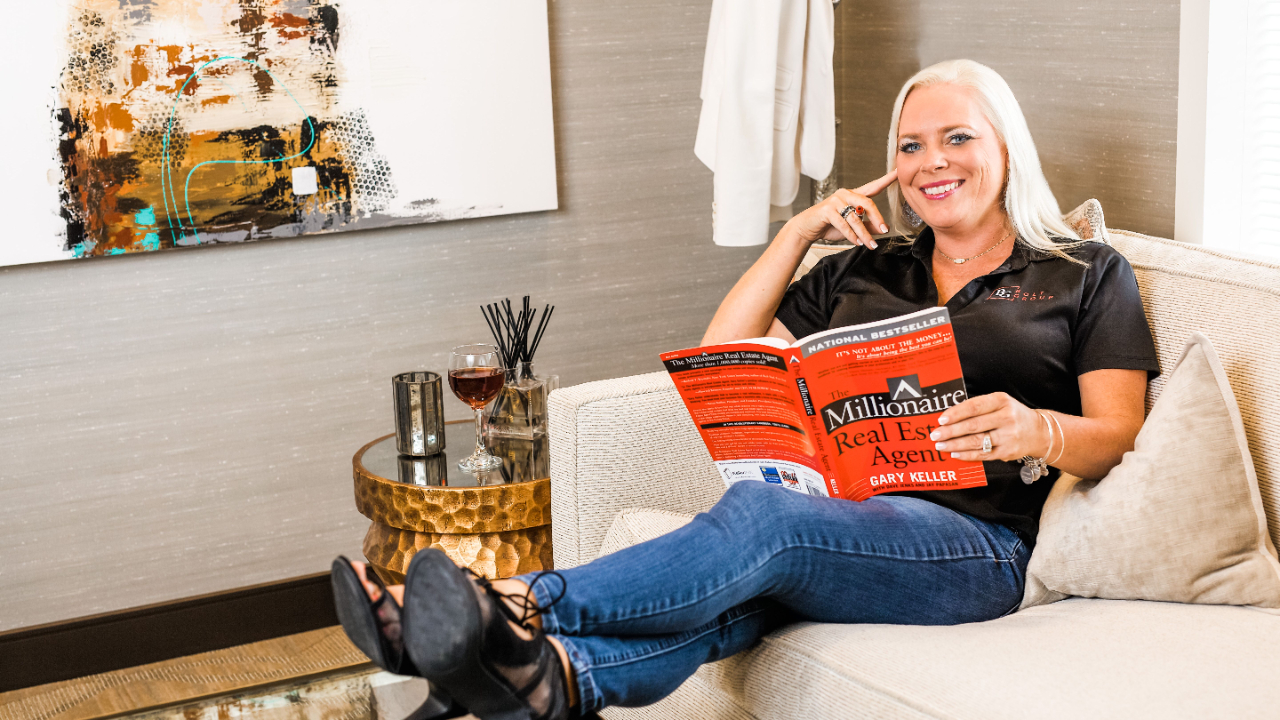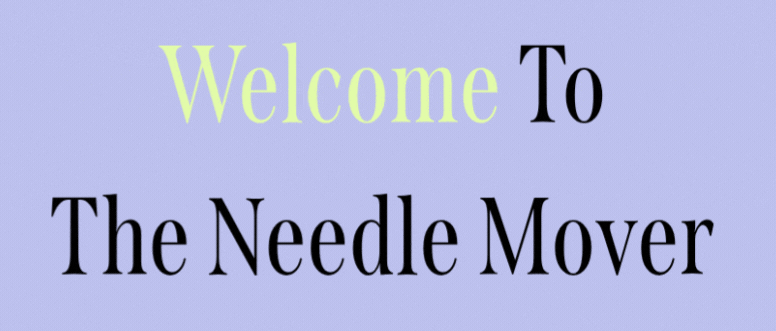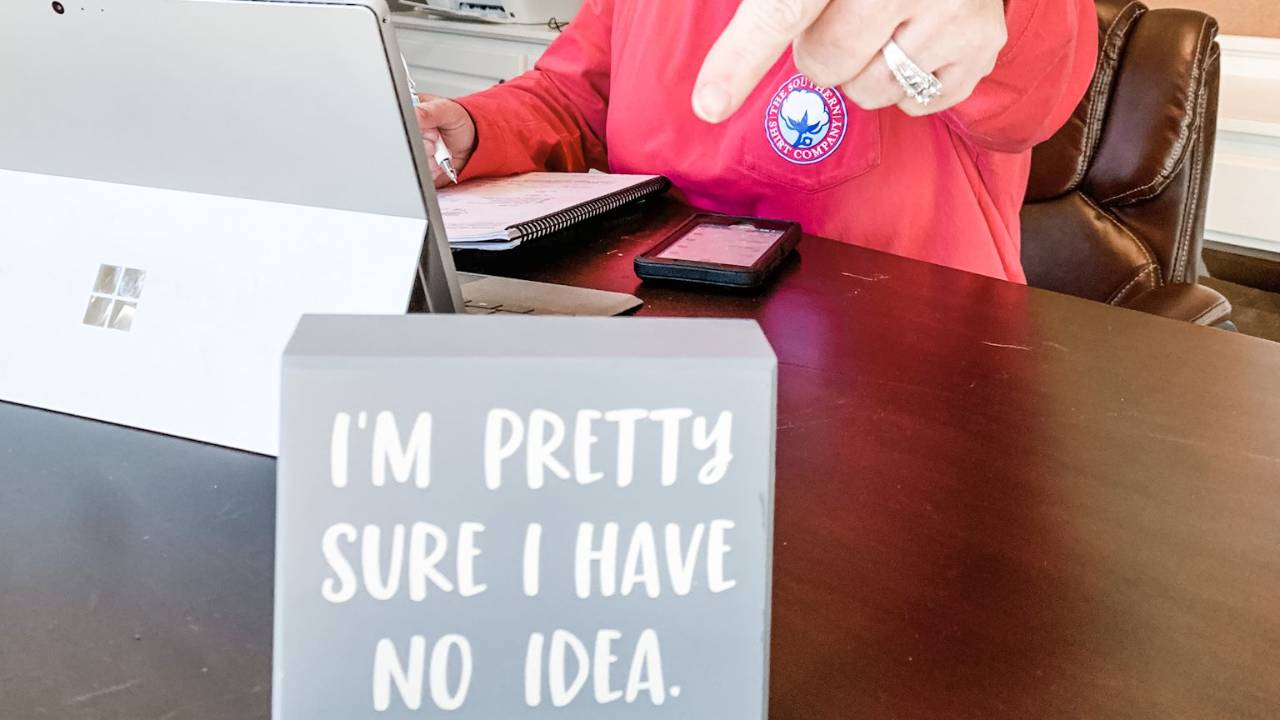The Career Trap: When Being Good Isn't Good Enough

Let me tell you about the career trap no one talks about.
It's not the obvious ones—like being underpaid or overworked or stuck with a toxic boss. Those problems are clear. You know you need to leave.
No, this trap is far more insidious because from the outside, everything looks perfect.
This trap? Being good at something you don't love.
The Golden Handcuffs of Competence
I was great as a Real Estate Agent. Let me be specific about what "great" looked like:
Successful quickly. While other agents struggled for years to build their client base, I was closing deals and getting referrals within months.
Trusted by my clients. They didn't just buy houses from me—they asked for my advice on everything from contractors to life decisions.
Well paid. For the industry, anyway. I wasn't worrying about making rent or choosing between groceries and gas.
Well liked. My colleagues respected me. My broker praised my work. Industry publications featured my success stories.
From every external measure, I had everything I'd worked for. The American Dream in action.
But here's what nobody saw: I was miserable.
Not just having a bad week or dealing with difficult clients. I was fundamentally, deeply misaligned with what I was spending 60+ hours a week doing.
And for a long time, I ignored that misery because I thought:
→ "It's just a rough patch. Every job has ups and downs."
→ "I should be grateful. Do you know how many people would kill for this level of success?"
→ "I can't walk away from something that's working. That would be crazy."
Sound familiar?
Why We Stay Trapped in Our Own Success
Here's the truth no career counselor tells you: Being good at something you don't love is its own kind of prison.
Because the praise feels good. When clients thank you for changing their lives, when colleagues ask for your advice, when your bank account reflects your competence—it's validating in a way that's hard to walk away from.
The awards feel meaningful. Whether it's "Top Producer" plaques or glowing testimonials or industry recognition, external validation creates its own momentum.
And the older you get, the harder it becomes to imagine starting over. At 25, pivoting feels adventurous. At 35, it feels reckless. At 45, it feels impossible. (And side note: your friends will think you're having a midlife crisis)
So we stay.
Even when Sunday night anxiety becomes our regular companion.
Even when we catch ourselves daydreaming about different careers during client meetings.
Even when our intuition keeps whispering: "There's something more."
We silence that voice with competence. We tell ourselves that being good at something is enough. That fulfillment is a luxury. That alignment is for people who can afford to chase their passions.
But here's what I learned the hard way: You can't perform your way out of misalignment.
The Wake-Up Call That Changed Everything
My moment of clarity came during what should have been a celebration.
I'd just closed the biggest deal of my career—a multi-million dollar property that had been on the market for months. Other agents had tried and failed. But I'd figured out the right buyer, navigated complex negotiations, and made everyone involved very happy.
The commission check was substantial. The recognition felt great. My broker was already talking about the next big opportunity.
And I felt... nothing.
Actually, that's not true. I felt dread. Because all I could think was: "I have to do this again. And again. And again."
That's when I realized: I was using competence to cover up misalignment.
Just because you can do something well doesn't mean it's what you're meant to keep doing. Just because others see your success doesn't mean you have to keep performing it.
Success without alignment isn't really success at all. It's just expensive misery.
Permission to Pivot: What Nobody Tells You
Here's what finally set me free: I gave myself permission to pivot.
Not permission from my friends (who thought I was crazy).
Not permission from my colleagues (who couldn't understand why I'd leave a "sure thing").
Not permission from society (which values financial success over personal fulfillment).
Permission from myself. To stop performing and start aligning.
Because here's the thing about pivots: They're not about throwing away what you've built. They're about building toward who you're becoming.
Every skill I developed in real estate—understanding people's deepest desires, navigating complex negotiations, building trust quickly, solving problems under pressure—became the foundation for what I built next.
The competence wasn't wasted. It was redirected.
But first, I had to get honest about what was really happening in my life.
The Questions That Will Set You Free
If you're reading this and something is resonating, ask yourself these questions. Not the surface-level "Am I happy?" questions, but the deeper ones:
Am I actually stuck, or am I just scared to leave what's "working"?
There's a difference between being trapped by circumstances and being trapped by fear. One requires external solutions. The other requires internal courage.
What am I using my competence to avoid facing?
Sometimes we stay excellent at things we don't love because it's easier than admitting we want something different. Excellence becomes our excuse for not exploring.
If I knew I couldn't fail, what would I pivot toward?
Remove the safety net of competence for a moment. What lights you up? What problems do you actually want to solve? What impact do you want to make?
What would my life look like if I optimized for alignment instead of achievement?
Achievement focuses on external measures. Alignment focuses on internal truth. Both matter, but most of us are dramatically over-indexed on achievement.
What's the cost of staying versus the cost of pivoting?
We always calculate the risk of change. We rarely calculate the risk of staying the same. But there's a price for trading your life for security that looks good on paper.
What Pivoting Actually Looks Like
Let me be clear about something: Pivoting isn't about burning everything down in a dramatic exit. (Although I did somewhat do that).
It's not about quitting your job tomorrow with no plan and hoping inspiration strikes.
It's not about following your passion if your passion is underwater basket weaving and you have a mortgage.
Real pivoting is strategic alignment.
It's about identifying what you want to build toward and then systematically building the bridge between where you are and where you want to be.
For me, that meant:
Starting small. I began coaching and consulting while still selling real estate. I tested whether my skills were transferable and whether this new direction actually energized me.
Building systems. I didn't just leave real estate—I built something to pivot into. This wasn't about escaping; it was about advancing. Your success was not a fluke—it's transferable when you approach it strategically.
Focusing on skills, not titles. Instead of thinking "I'm a real estate agent who wants to be a business coach," I thought "I'm someone who helps people make important decisions who wants to help them in a different context."
Creating breathing room. I built financial cushions and timeline flexibility so the pivot could happen from a place of choice, not desperation.
The Truth About Starting Over
Here's what surprised me most about pivoting: I wasn't actually starting over.
Every difficult conversation I'd navigated with buyers and sellers prepared me for coaching conversations with entrepreneurs.
Every deal I'd saved from falling apart taught me about problem-solving under pressure.
Every referral I'd earned showed me the power of building genuine relationships.
The skills transferred. The relationships mattered. The competence wasn't lost—it was repurposed.
You're not throwing away your expertise when you pivot. You're applying it differently.
And here's the other thing: The market rewards authentic expertise differently than performative excellence.
When you're doing something you love, using skills you've genuinely developed, solving problems you actually care about? That energy is magnetic. People feel it. They want to work with you. They pay premium prices for it.
The Ripple Effects of Alignment
The business I built after leaving real estate didn't just make me happier—it made me more successful by every external measure too.
More income. More impact. More recognition. More freedom.
But the real transformation was internal: I stopped feeling like I was performing someone else's idea of success and started building my own version of it.
That shift changes everything. How you show up. How you make decisions. How you handle setbacks. How you connect with people.
When you're aligned, work stops feeling like work. Not because it's easy, but because it's yours.
Your Permission Slip
If you're feeling trapped by your own competence right now, here's your permission slip:
You don't owe anyone a linear path.
You don't have to stay in a career because you're good at it, or because others expect it, or because starting over feels impossible.
You owe yourself a life that feels like yours.
Not a life that looks impressive to others. Not a life that maximizes security or status or other people's definitions of success.
A life that you actually want to live.
The skills you've developed aren't anchors—they're assets. The competence you've built isn't a cage—it's a foundation.
The question isn't whether you can afford to pivot. The question is whether you can afford not to.
Because here's what I know for sure: Life is too short to spend it being excellent at something that doesn't light you up.
Your expertise is valuable. Your time is finite. Your fulfillment matters.
If something inside you is saying "there's something more," listen to it.
That voice isn't leading you astray. It's leading you home.
Ready to Pivot Strategically?
If you're ready to move from competence without alignment to expertise with purpose, you don't have to figure it out alone.
The Messy Middle Mastermind is where ambitious professionals learn to build businesses that align with who they're becoming—not just who they've been.
Because your next chapter is waiting. And it's going to be your best one yet.
Related Posts:





